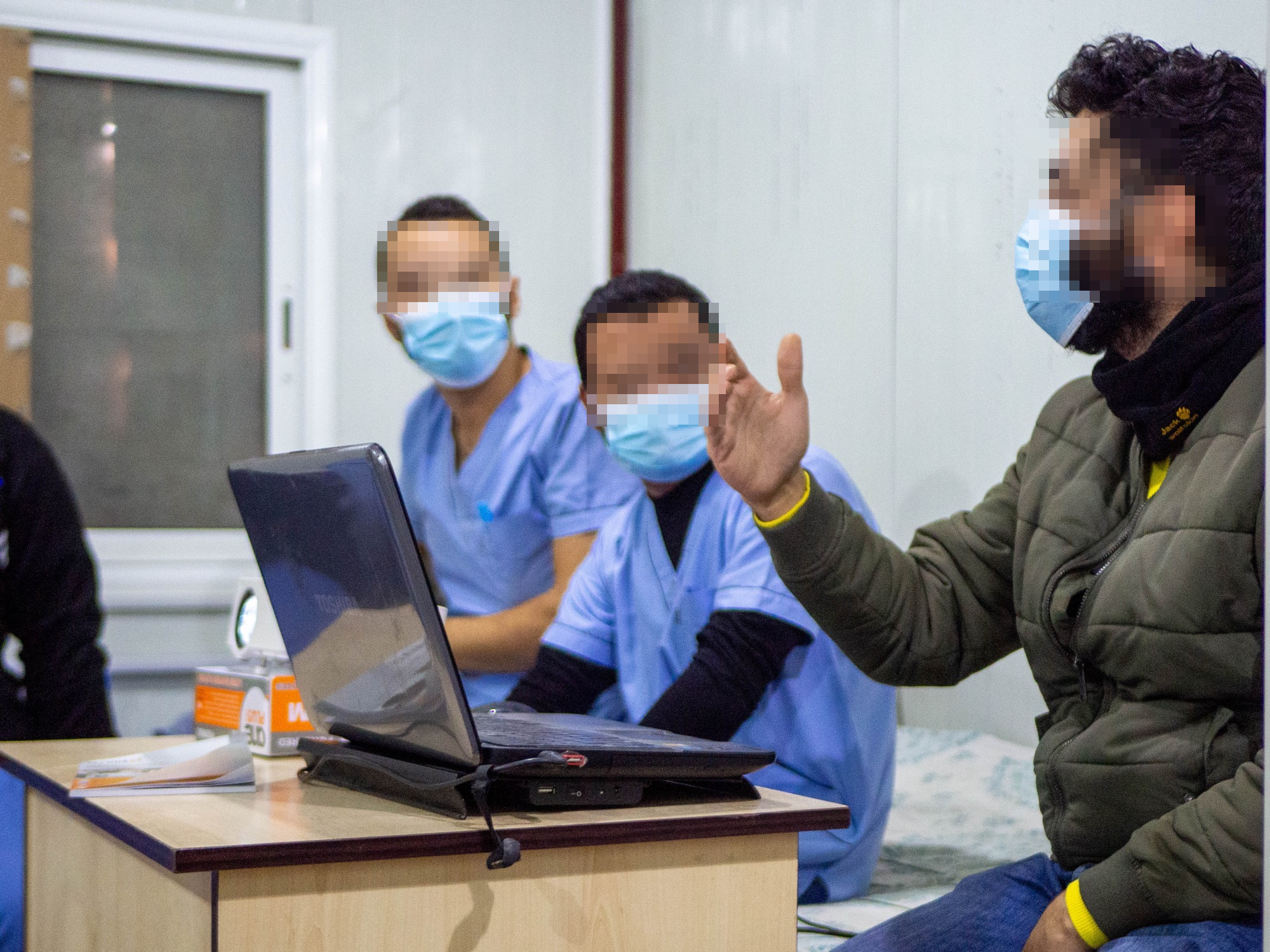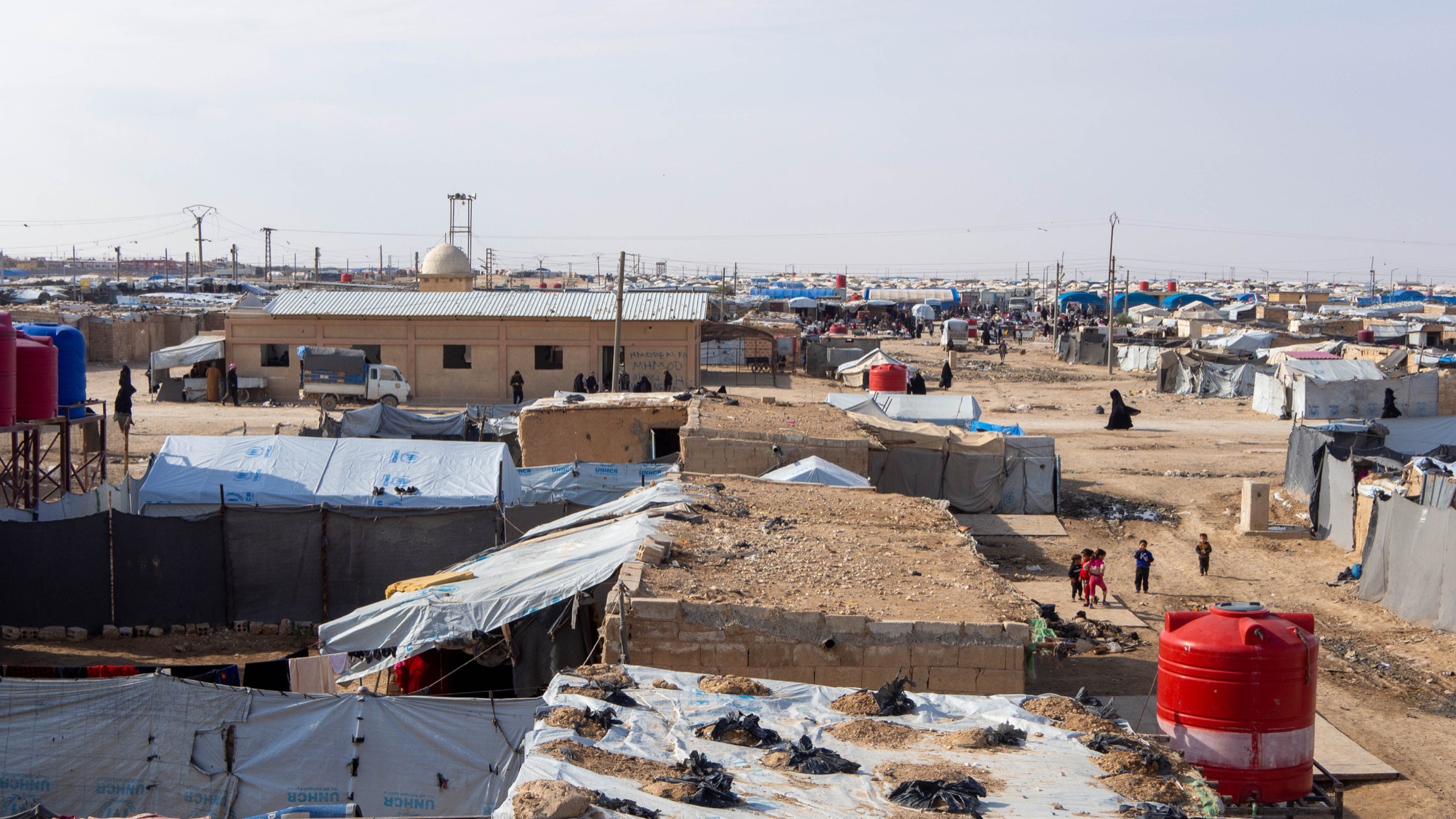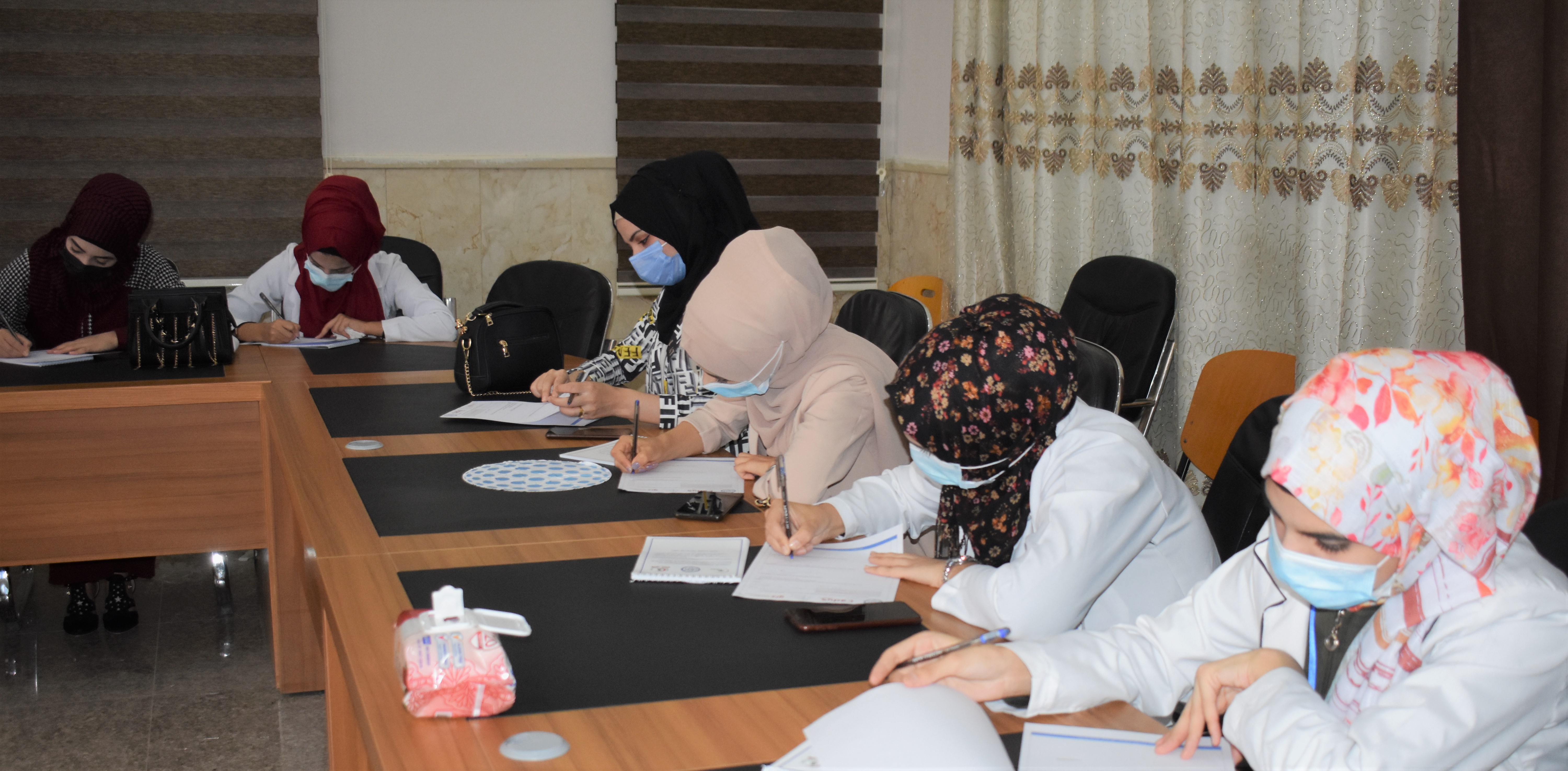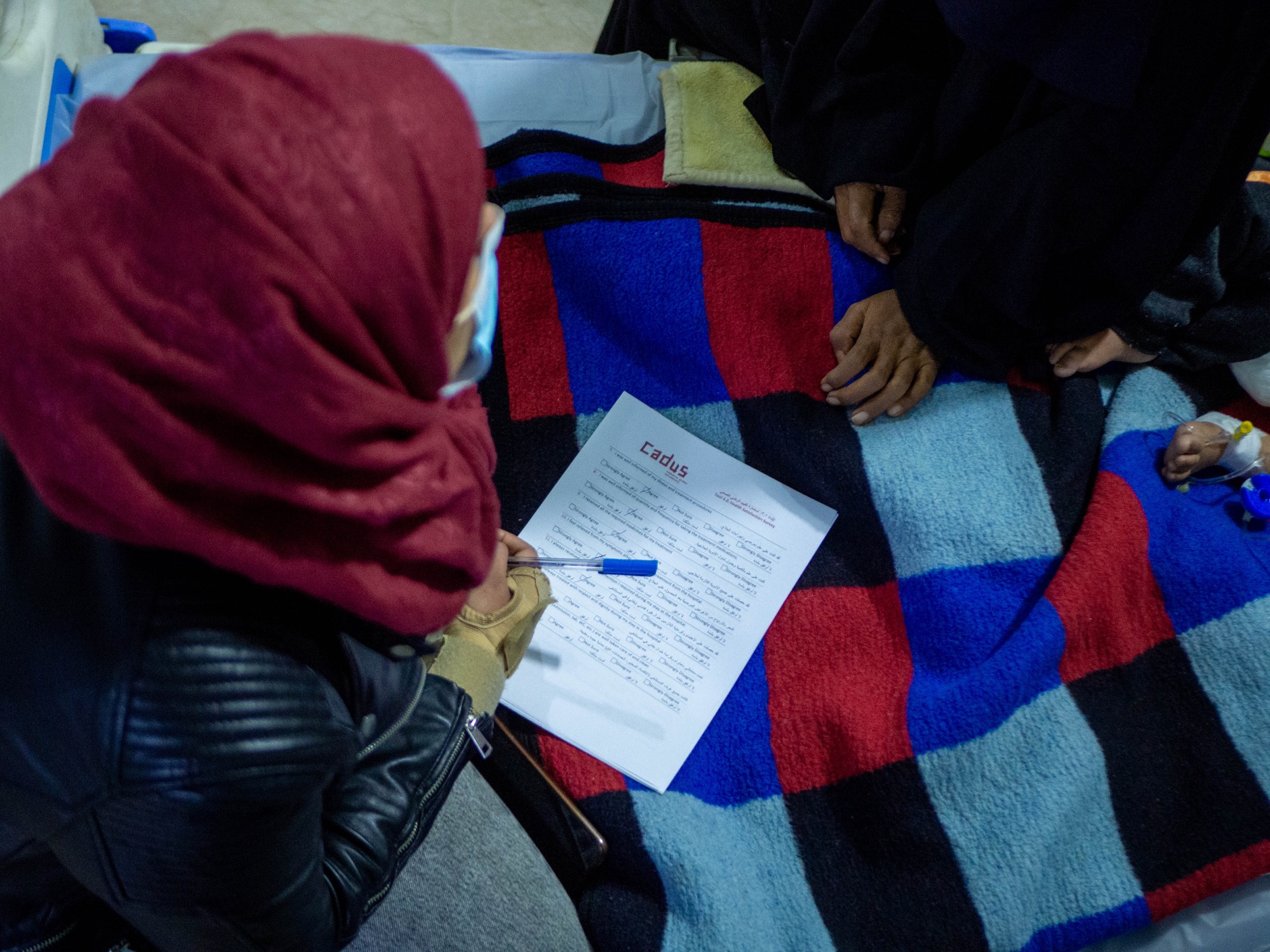
big-changes-are-on-the-horizon-at-cadus-in-2023-feature-al-hol-b5964acb
Major changes are planned at CADUS for 2023
The year 2022 was full of ups and downs – in the world and in our company. The events have changed both us personally and CADUS. We would like to report on this intensive period and its consequences for our organization here.
One of the most far-reaching changes will be our complete withdrawal from the Middle East region.
The CADUS concept is multifaceted, and anything but simple
CADUS is always active in very different contexts: in the broad field of humanitarian aid, sometimes side by side with regional initiatives, and sometimes as an implementation partner of actors such as the WHO or the Federal Foreign Office. Direct medical and technical assistance alternates with sustainable training programs and long-term cooperation with regional partners. We have also set ourselves the task of developing innovative concepts and analyzing and debating the causes of humanitarian emergencies. That’s a lot, and has not only led to interdisciplinarity and diversity of methods within our organization, but also to heated debates and disputes over direction time and again.
 There were discussions not only within CADUS, but also among the employees of the hospital in al-Hol during the founding phase of the new organization (symbolic image). Photo: CADUS
There were discussions not only within CADUS, but also among the employees of the hospital in al-Hol during the founding phase of the new organization (symbolic image). Photo: CADUS
Due to this mixed situation, there were two operational departments with different areas of activity at CADUS at the beginning of 2022:
Emergency Response (ER), and Middle East (ME). The headquarters (HQ), the main office in Berlin, formed a third, non-operational part of CADUS.
The world looked different at the beginning of 2022
The Middle East team started 2022 with a stronger team and planned further long-term projects and collaborations for northern Iraq and north-eastern Syria. In order to make this type of project possible, the focus in the previous two years was already on establishing solid structures and processes. During the same period, the Emergency Response Team concentrated on establishing short-term operational capability with a focus on expanding the emergency aid equipment. While the Middle East was mainly occupied with managing the field hospital in Al Hol and coordinating the camp’s rescue coordination center, the Emergency Response was involved in several short missions in the context of flight, migration, and pandemic. Due to the different orientations of the departments and sometimes conflicting priorities, exchange and cooperation were increasingly fraught with conflict.
 Since March 2019, CADUS has been running a hospital in the al-Hol refugee camp to provide 24/7 care for the local people. Photo: CADUS
Since March 2019, CADUS has been running a hospital in the al-Hol refugee camp to provide 24/7 care for the local people. Photo: CADUS
CADUS has been operating in conflict and war zones almost since the organization was founded. A responsible field of activity that is associated with a high level of stress and in which small mistakes can have fatal consequences. The Middle East team in particular had to carry this baggage until the beginning of 2022. With Russia’s attack on Ukraine on 24 February 2022, the situation came to a head not only in the world, but also within the organization. The start of this war was extremely upsetting for all of us, and the new situation meant a massive increase in stress, especially for the Emergency Response Team as they prepared for deployment.
The conflicts between the departments, which had already existed for some time, were exacerbated by the acute stress. It became increasingly clear that the two operational teams had developed in very different directions. The three management teams of the divisions represented different and hardly compatible ways of working, which could not be brought together in this internal and global crisis situation. Gradually, this conflict spread to the entire workforce. As a sad consequence, many employees left the organization.
The end is in sight – and a new beginning
Ultimately, we were unable to resolve the existing conflicts. The approaches of the two teams are too different and there is not enough capacity to deal with the conflicts. So what do you do when you can’t go any further together?
 In Iraq, we mainly offered training and further education for medical staff, such as here in Mosul together with the Viyan organization. Photo: Viyan
In Iraq, we mainly offered training and further education for medical staff, such as here in Mosul together with the Viyan organization. Photo: Viyan
After a long back and forth with many ideas, approaches and unfortunately also dead ends, the Board of Directors made a decision: CADUS will give up its projects in the Middle East region and concentrate on short-term emergency response. The Middle East team will no longer exist in the future, the department will be closed and CADUS will leave the region on June 30, 2023.
Of course, this is far from satisfactory for everyone, but it is clear that a decision had to be made.
What will happen to our projects in northern Iraq and north-eastern Syria? While smaller, completed training programs were carried out in northern Iraq and the cessation of our activities there is a regrettable, but not critical cut, the situation in north-eastern Syria is quite different with regard to the Al Hol field hospital. The hospital is regarded locally as a critical healthcare infrastructure and provides stable employment for 65 employees under the management of CADUS. With the withdrawal of CADUS from the region, all of this is at risk. And yet…. This end also means a new beginning.
The solution is localization
Our colleagues in north-east Syria are working at full speed to find a solution to this critical situation. While CADUS tried in vain from Berlin to find an international organization that would be willing to take over the highly complex “Field Hospital Camp Al Hol” project, a great plan was forged locally: the foundation of a new, locally based NGO consisting of the hospital’s employees, who will continue to run it.
 The traces of our work in the hospital are still visible. This is soon continued by the newly founded local organization Sîlêr. Photo: CADUS
The traces of our work in the hospital are still visible. This is soon continued by the newly founded local organization Sîlêr. Photo: CADUS
This path is also anything but easy – otherwise the path of localizing humanitarian aid there would probably have been taken long ago. But with the pressure generated by the current situation on the one hand and the energy of our colleagues on the ground on the other, many things suddenly seem possible. And so “Sîlêr – Crisis Response” (SCR for short) was launched.
While jobs are now being cut in Berlin and suitcases are being packed, a new chapter is beginning in north-east Syria with an organization that will not only continue to run the field hospital, but will also be available for general emergency and disaster relief in the region. Sîlêr (pronounced Schlee-er) is still under construction, and there are quite a few bureaucratic hurdles to overcome. But we will keep you up to date and will of course let you know as soon as there is any news.
Published:
Author: by Corinna Schäfer
By CadusPR
Stay informed about our missions, events and humanitarian emergency aid topics – with our newsletter!
Newsletter registration
I want to unsubscribe from the newsletter.



